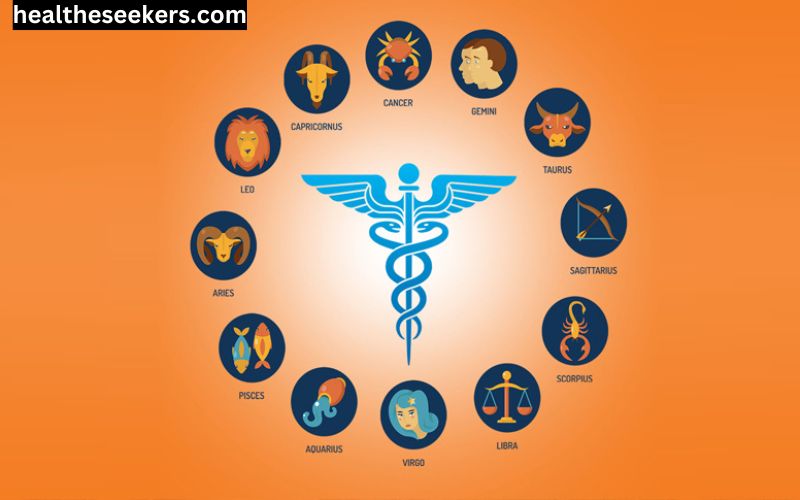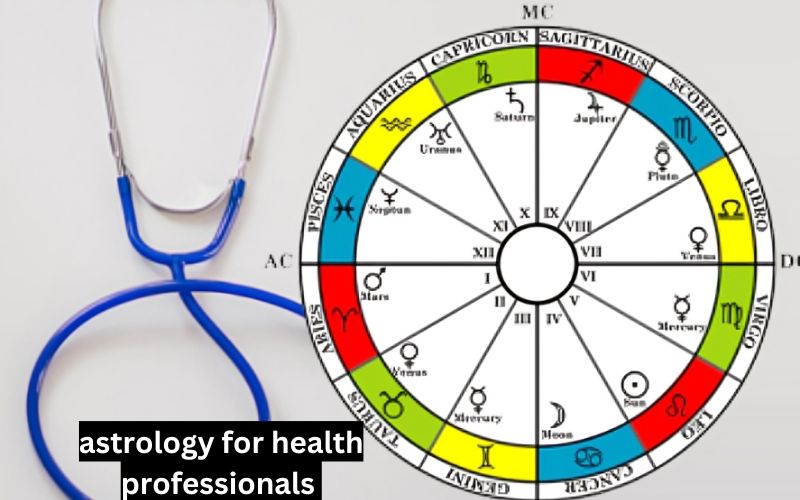Astrology, the study of celestial bodies and their influence on human affairs, has been a subject of fascination and controversy for centuries. While often associated with daily horoscopes and personality traits, astrology’s application in health and wellness is an area that has garnered increasing attention. For health professionals, understanding the potential benefits and limitations of astrology can open new avenues for patient care, particularly in holistic and integrative medicine. This article delves into astrology’s relevance to health professionals, exploring its historical roots, principles, applications, and ethical considerations.
Historical Context and Evolution of Medical Astrology
Medical astrology, also known as iatromathematics, has its origins in ancient civilizations, including those of Babylon, Egypt, Greece, and India. The concept that celestial bodies influence human health is deeply rooted in the astrological traditions of these cultures.
In ancient Greece, astrology was integrated into medical practice, most notably by Hippocrates, the father of modern medicine. Hippocrates believed that understanding the astrological signs of the zodiac was essential for diagnosing and treating illnesses. He famously stated, “A physician without knowledge of astrology has no right to call himself a physician.”
Astrology’s influence on medicine persisted through the Middle Ages and the Renaissance. Medical practitioners used astrological charts to determine the best times for surgeries, bloodletting, and the administration of herbal remedies. The practice was based on the belief that the positions of the planets and stars at the time of a person’s birth and during key moments in their life could affect their physical and mental health.

The Basic Principles of Medical Astrology
Medical astrology operates on the principle that the human body and the cosmos are interconnected. Each of the twelve zodiac signs, along with the planets, corresponds to different parts of the body, organs, and systems. Understanding these correspondences allows health professionals to consider astrological factors in the assessment and treatment of patients.
- Zodiac Signs and the Human Body
- Aries: Head, brain, and eyes
- Taurus: Throat, neck, and thyroid gland
- Gemini: Lungs, arms, hands, and nervous system
- Cancer: Stomach, breasts, and digestive system
- Leo: Heart, spine, and upper back
- Virgo: Digestive system, intestines, and spleen
- Libra: Kidneys, lower back, and skin
- Scorpio: Reproductive organs, bladder, and colon
- Sagittarius: Hips, thighs, liver, and sciatic nerve
- Capricorn: Bones, knees, and teeth
- Aquarius: Ankles, calves, and circulatory system
- Pisces: Feet, toes, and lymphatic system
- Planets and Their Influence
- Sun: Vitality, heart, and overall constitution
- Moon: Emotions, fluids in the body, and reproductive health
- Mercury: Communication, nervous system, and respiratory health
- Venus: Love, beauty, throat, kidneys, and skin
- Mars: Energy, muscles, blood, and inflammatory conditions
- Jupiter: Growth, liver, and circulatory system
- Saturn: Structure, bones, teeth, and chronic conditions
- Uranus: Innovation, circulatory and nervous system
- Neptune: Intuition, feet, and immune system
- Pluto: Transformation, reproductive system, and detoxification
- Houses in Astrology
The twelve houses in astrology represent different areas of life and health. For example, the 6th house is traditionally associated with health and daily routines, while the 12th house is linked to the subconscious mind, hidden illnesses, and hospitals. Analyzing the planets’ positions in these houses can provide insights into a person’s health tendencies and potential vulnerabilities.
Applications of Medical Astrology in Health Practice
For health professionals, incorporating astrological insights into practice can enhance patient care in various ways. It’s important to approach this with an open mind while maintaining a strong foundation in evidence-based medicine.
- Preventive Health Care
Medical astrology can be a tool for preventive health care. By analyzing a patient’s natal chart, health professionals can identify potential health risks associated with their zodiac sign and planetary positions. For example, a person with strong Aries influences may be prone to headaches and should take steps to manage stress and protect their head from injury.
Astrological insights can also guide patients on the best times to undergo medical procedures or start new health regimens. For instance, avoiding surgery during a Mercury retrograde, when communication and technology often go awry, is a common recommendation in astrological practice. - Holistic and Integrative Medicine
In holistic and integrative medicine, the mind-body connection is paramount. Astrology aligns with this approach by considering the emotional and spiritual factors that contribute to physical health. For example, a patient with a strong Cancer influence may be emotionally sensitive and prone to digestive issues. A holistic treatment plan could include stress management techniques, such as mindfulness or yoga, in addition to dietary recommendations.
Medical astrology can also help in understanding the psychological aspects of illness. The Moon, which governs emotions, can provide insights into a patient’s emotional well-being and how it affects their physical health. Health professionals can use this information to develop more personalized treatment plans that address both the physical and emotional needs of their patients. - Timing of Treatments
Astrological timing, or “electional astrology,” involves choosing the most auspicious times for medical treatments, surgeries, and other health interventions. By considering the positions of the Moon and planets, health professionals can determine the best times for procedures to enhance their success and minimize complications.
For example, surgeries are often recommended during a waxing Moon, when the body’s healing energies are believed to be at their peak. Conversely, the waning Moon is associated with detoxification and may be an ideal time for procedures that involve the removal of harmful substances from the body, such as dental work or minor surgeries. - Understanding Chronic Conditions
Chronic conditions often have complex, multifaceted causes that can be difficult to diagnose and treat. Medical astrology offers an additional perspective by identifying astrological factors that may contribute to chronic illnesses.
Saturn, the planet of structure and limitations, is often associated with chronic conditions. Its placement in a patient’s natal chart can reveal areas of the body that may be prone to long-term issues. For instance, Saturn in Capricorn could indicate a predisposition to bone and joint problems, suggesting the need for preventive care such as calcium supplements and weight-bearing exercises.
Additionally, Pluto’s influence on the natal chart can shed light on deep-seated psychological issues that may manifest as chronic illnesses. By addressing these underlying emotional and psychological factors, health professionals can offer more comprehensive and effective treatment plans. - Mental Health
Astrology can also play a role in mental health care by providing insights into a patient’s emotional and psychological state. The positions of the Moon, Mercury, and Neptune are particularly significant in understanding a person’s mental health tendencies.
For example, a strong influence of Neptune in the natal chart may indicate a person who is highly empathetic but also prone to confusion, escapism, and addiction. Health professionals can use this information to guide their approach to treatment, perhaps incorporating therapies that focus on grounding and clarity.
Similarly, Mercury’s position in the chart can reveal how a person processes information and communicates. A challenging Mercury placement may indicate difficulties with anxiety or depression, suggesting the need for cognitive-behavioral therapy or other forms of mental health support. - Patient Education and Empowerment
One of the most valuable aspects of medical astrology is its potential to empower patients by helping them understand their health patterns and tendencies. By educating patients about their astrological influences, health professionals can encourage them to take proactive steps in managing their health.
For example, a patient with a strong Leo influence may benefit from understanding the importance of heart health and incorporating cardiovascular exercises into their routine. A patient with a prominent Virgo influence may be prone to digestive issues and should focus on maintaining a balanced diet and managing stress.
By integrating astrology into patient education, health professionals can foster a deeper connection with their patients and promote a more holistic approach to health and wellness.
Ethical Considerations in Medical Astrology
While astrology can offer valuable insights into health and wellness, it’s important for health professionals to approach it with caution and ethical responsibility. Here are some key considerations:
- Complementary, Not Substitute
Medical astrology should be viewed as a complementary tool, not a substitute for conventional medical care. Health professionals must ensure that patients receive evidence-based medical treatment and do not rely solely on astrological guidance for serious health concerns. - Informed Consent
Before incorporating astrology into patient care, health professionals should obtain informed consent from their patients. This includes explaining the astrological concepts being used, the potential benefits, and the limitations. Patients should have the option to decline astrology-based interventions without affecting their overall care. - Avoiding Determinism
Astrology should not be used to make deterministic predictions about a patient’s health. While astrological insights can highlight potential tendencies and risks, they should not be interpreted as absolute outcomes. Health professionals should emphasize the importance of lifestyle choices, environmental factors, and medical care in determining health outcomes. - Respecting Cultural Beliefs
Not all patients may be open to or comfortable with astrology. Health professionals should respect their patients’ cultural and religious beliefs and avoid imposing astrological practices on those who do not wish to participate. - Continual Learning and Integration
Health professionals interested in incorporating astrology into their practice should seek ongoing education and training in both astrology and medicine. This includes understanding the latest research in both fields and finding ways to integrate them in a way that is ethical, effective, and respectful of patients’ needs.
The Future of Medical Astrology in Health Care
As the field of integrative medicine continues to grow, the role of astrology in health care is likely to evolve. Advances in technology, such as computer-generated astrological charts and predictive algorithms, may make it easier for health professionals to incorporate astrology into their practice.
However, the future of medical astrology will depend on ongoing research, education, and dialogue between astrologers, health professionals, and patients. By fostering a collaborative approach, the potential benefits of astrology can be harnessed to enhance patient care, promote preventive health, and support holistic well-being.
See Also: lyme disease teeth
Conclusion
Astrology offers a unique perspective on health and wellness that can complement traditional medical practices. For health professionals, understanding the basic principles of medical astrology and its potential applications can enhance patient care in a holistic and integrative manner. While it is important to approach astrology with ethical responsibility and respect for evidence-based medicine, its insights into the mind-body connection, timing of treatments, and patient empowerment can be valuable tools in promoting health and well-being.
As interest in holistic and integrative medicine continues to grow, astrology may find a place alongside other complementary therapies in the health care landscape. By remaining open to new ideas and committed to patient-centered care, health professionals can explore the potential of astrology as a valuable adjunct to conventional medical practice.




